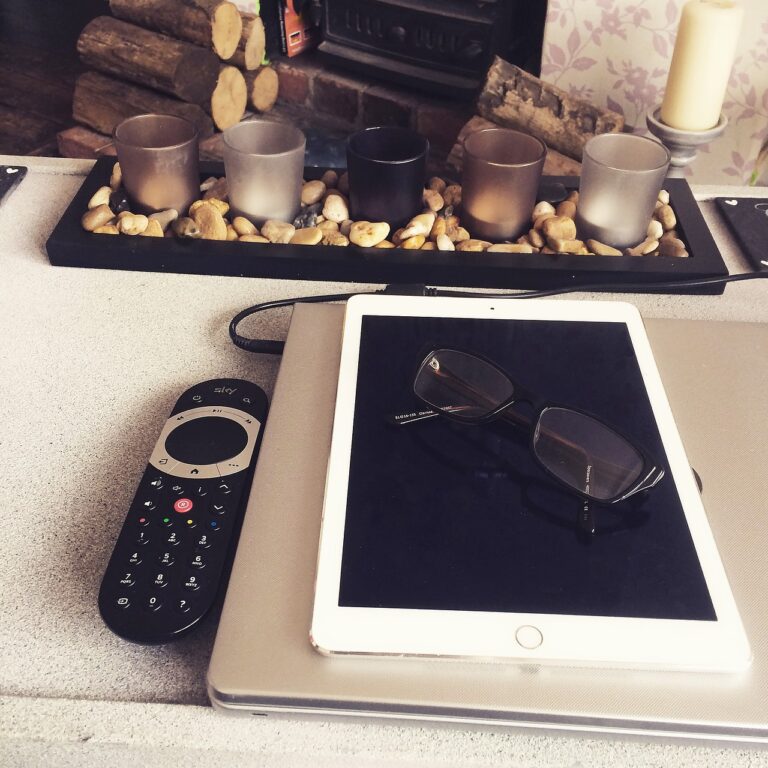Mindful Work-Life Balance: Prioritizing Well-Being in a Busy World
Work-life balance is crucial for maintaining our overall well-being and happiness. Focusing solely on work can lead to burnout, increased stress levels, and a decline in mental and physical health. On the other hand, neglecting work responsibilities in favor of personal pursuits can hinder career growth and financial stability. Striking a balance between work and personal life allows individuals to be more productive, engaged, and fulfilled in all aspects of their lives. It enables them to recharge and rejuvenate, leading to increased creativity, motivation, and a sense of fulfillment in both professional and personal endeavors. By prioritizing work-life balance, individuals can improve their mental health, relationships, and overall quality of life.
Understanding the Impact of Stress on Well-Being
Stress has become a common fixture in modern-day life, affecting individuals both mentally and physically. The impact of stress on well-being can manifest in a variety of ways, from increased anxiety and irritability to physical symptoms such as headaches and muscle tension.
Furthermore, chronic stress can have long-term effects on overall health, leading to conditions like heart disease, depression, and weakened immune function. Understanding the relationship between stress and well-being is crucial in order to implement effective strategies for managing stress and promoting a healthier lifestyle.
Identifying Work-Life Imbalance Signs
Work-life imbalance can manifest in various ways that impact both your professional and personal life. One common sign is feeling overwhelmed by the never-ending demands of work, leading to a sense of exhaustion and burnout. You may find yourself constantly thinking about work even during your personal time, unable to fully disconnect and recharge. This inability to switch off can result in heightened stress levels and a persistent feeling of being on edge.
Another sign of work-life imbalance is neglecting important personal relationships and activities that once brought you joy. When work takes precedence over everything else, you may notice a deterioration in your relationships with family and friends, as well as a lack of engagement in hobbies or interests outside of work. This can create a sense of isolation and loneliness, further exacerbating the feeling of imbalance in your life.
Tips for Setting Boundaries Between Work and Personal Life
Setting boundaries between work and personal life is crucial in maintaining a healthy balance and preventing burnout. One effective tip is to establish designated work hours and stick to them as much as possible. By creating a clear distinction between work time and personal time, you can ensure that work does not encroach upon your personal life, allowing you to fully disconnect and recharge outside of work hours.
Another helpful tip is to set boundaries on technology use outside of work hours. This means resisting the urge to check work emails or messages once you have officially logged off for the day. Creating a tech-free period before bedtime can also improve sleep quality and overall well-being by reducing exposure to blue light and work-related stressors. By setting these boundaries, you can cultivate a better work-life balance and prioritize self-care.
Strategies for Time Management and Prioritization
When it comes to managing your time effectively, it is essential to prioritize tasks based on their importance and urgency. One helpful strategy is to create a to-do list at the start of each day, outlining all the tasks that need to be completed. This can help you focus on what needs to be done first and prevent feeling overwhelmed by a mountain of work.
Another key aspect of time management is avoiding multitasking, as it can lead to decreased productivity and quality of work. Instead, try to focus on one task at a time and allocate specific time blocks for each activity. By staying organized and setting clear priorities, you can improve your efficiency and effectiveness in tackling daily tasks.
Incorporating Self-Care Activities into Your Daily Routine
Incorporating self-care activities into your daily routine is crucial for maintaining overall well-being and managing stress levels. Taking the time to prioritize self-care can help improve your mental, emotional, and physical health. It is essential to carve out moments in your day to engage in activities that bring you joy and relaxation. This could include anything from practicing mindfulness and meditation to going for a walk in nature or indulging in a hobby you love.
Make self-care a non-negotiable part of your daily schedule by setting aside dedicated time each day for activities that nourish your mind, body, and soul. Remember that self-care looks different for everyone, so it’s important to find what works best for you and incorporate those activities into your routine consistently. By making self-care a priority, you are investing in your overall well-being and building resilience to better cope with the demands of daily life.
The Role of Communication in Balancing Work and Life
Effective communication is a crucial element in achieving a healthy work-life balance. It is essential for individuals to clearly express their needs, expectations, and boundaries to both their employers and loved ones. Open and honest communication can help prevent misunderstandings, reduce conflicts, and establish mutual respect in both professional and personal relationships.
By maintaining transparent communication channels, individuals can negotiate flexible work schedules, set realistic goals, and seek support when needed. Furthermore, discussing concerns openly can lead to the identification of potential solutions and foster a collaborative approach to problem-solving. Ultimately, effective communication lays the foundation for a harmonious integration of work and personal life, enabling individuals to thrive in all aspects of their wellbeing.
Building a Support System for Work-Life Balance
Building a support system for work-life balance is essential for maintaining overall well-being. Surrounding yourself with understanding and positive individuals can help alleviate stress and provide a sense of encouragement during challenging times. Whether it’s seeking advice from a trusted friend, confiding in a family member, or connecting with a professional counselor, having a support system can make a significant difference in navigating the demands of both work and personal life.
In addition to seeking support from others, building a support system also involves setting boundaries and prioritizing self-care. Learning to say no when feeling overwhelmed and taking time to engage in activities that promote relaxation and rejuvenation are key aspects of creating a balanced lifestyle. By establishing a strong network of support and making self-care a priority, individuals can better manage the responsibilities of work and personal life while fostering a sense of well-being and fulfillment.
Creating a Healthy Work Environment
Fostering a healthy work environment is essential for both the well-being of employees and the success of a company. A positive work environment can lead to increased productivity, higher job satisfaction, and lower turnover rates. To create a healthy work environment, employers can start by promoting open communication, encouraging collaboration, and providing opportunities for skill development and growth.
Additionally, implementing policies that support work-life balance, offering flexibility in work arrangements, and recognizing and rewarding employee contributions can contribute to a positive workplace culture. A healthy work environment is not only beneficial for the employees, but also for the overall performance and reputation of the organization. By prioritizing the well-being of employees and creating a supportive and inclusive work environment, companies can achieve greater success and cultivate a more engaged and motivated workforce.
Celebrating Small Wins and Practicing Gratitude
When it comes to maintaining a healthy work-life balance, celebrating small wins and practicing gratitude can play a significant role in keeping a positive mindset. Taking the time to acknowledge and appreciate the small achievements, whether at work or in personal life, can boost motivation and overall well-being. These moments of recognition not only serve as a reminder of progress but also encourage a sense of accomplishment that can propel you forward.
Gratitude, on the other hand, serves as a powerful tool in shifting focus towards the positives in life. By expressing thanks for the little things that bring joy or make a difference, you cultivate a mindset of appreciation and abundance. This shift in perspective can help combat stress and negative emotions, leading to a more balanced and fulfilling work-life harmony. Incorporating practices of gratitude into your daily routine can create a ripple effect of positivity that enhances both professional and personal spheres.
Why is work-life balance important?
Work-life balance is important because it helps prevent burnout, reduces stress, improves mental and physical health, and allows individuals to have time for activities outside of work that bring them joy and fulfillment.
How can stress impact our well-being?
Stress can impact our well-being by leading to physical health issues such as high blood pressure and heart disease, as well as mental health issues like anxiety and depression. It can also result in decreased productivity and overall job satisfaction.
What are some signs of work-life imbalance?
Signs of work-life imbalance can include feeling constantly overwhelmed, experiencing difficulty sleeping, neglecting personal relationships, and feeling a lack of fulfillment in both work and personal life.
How can I set boundaries between work and personal life?
Setting boundaries between work and personal life can involve creating designated work hours, turning off work notifications outside of those hours, and prioritizing self-care activities that help you recharge and disconnect from work.
How can I incorporate self-care activities into my daily routine?
You can incorporate self-care activities into your daily routine by scheduling time for activities you enjoy, such as exercise, reading, or spending time with loved ones. It’s important to prioritize self-care just as you would any other task.
Why is communication important in balancing work and life?
Communication is important in balancing work and life because it helps set expectations with both colleagues and loved ones, allows for flexibility when needed, and can help prevent misunderstandings that can lead to increased stress.
How can I build a support system for work-life balance?
You can build a support system for work-life balance by communicating your needs to friends, family, and colleagues, seeking out mentors or coaches for guidance, and connecting with others who are also striving for work-life balance.
How can I create a healthy work environment?
You can create a healthy work environment by promoting open communication, encouraging breaks and time off, fostering a supportive and inclusive culture, and advocating for work policies that prioritize employee well-being.
Why is it important to celebrate small wins and practice gratitude?
Celebrating small wins and practicing gratitude can help boost morale, increase motivation, and improve overall well-being. It allows individuals to acknowledge their accomplishments and feel a sense of gratitude for the positive aspects of their lives.







